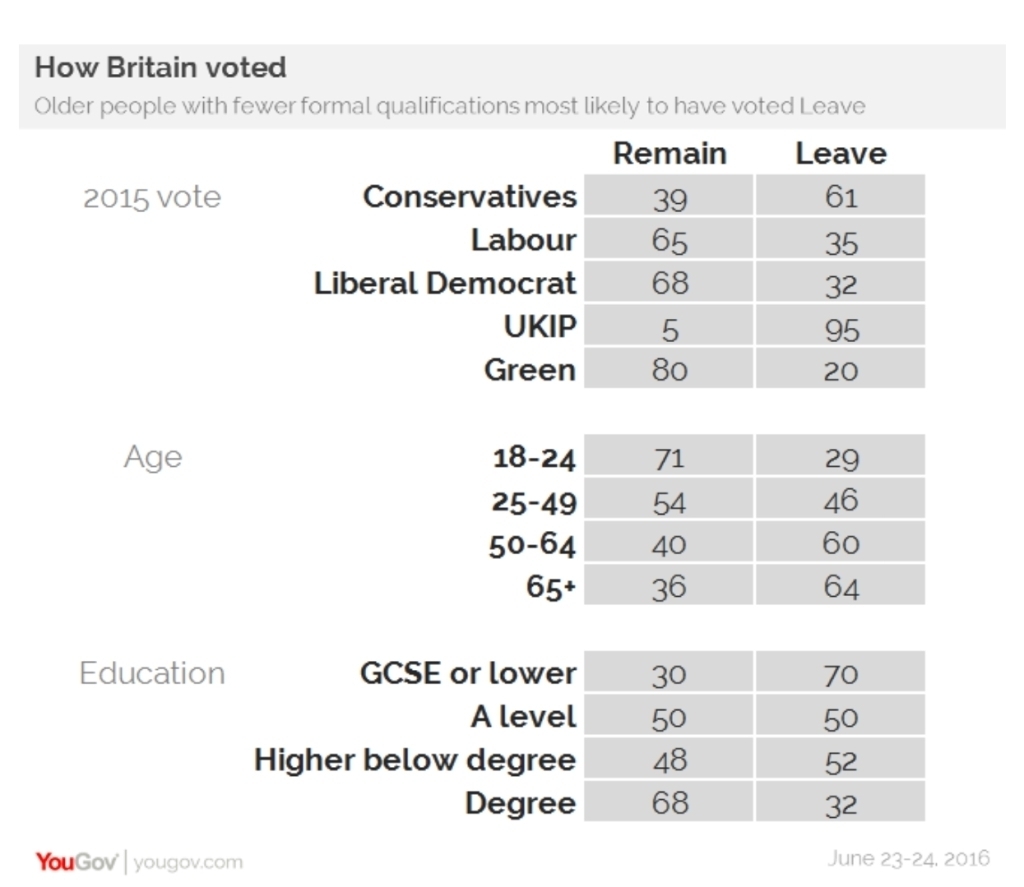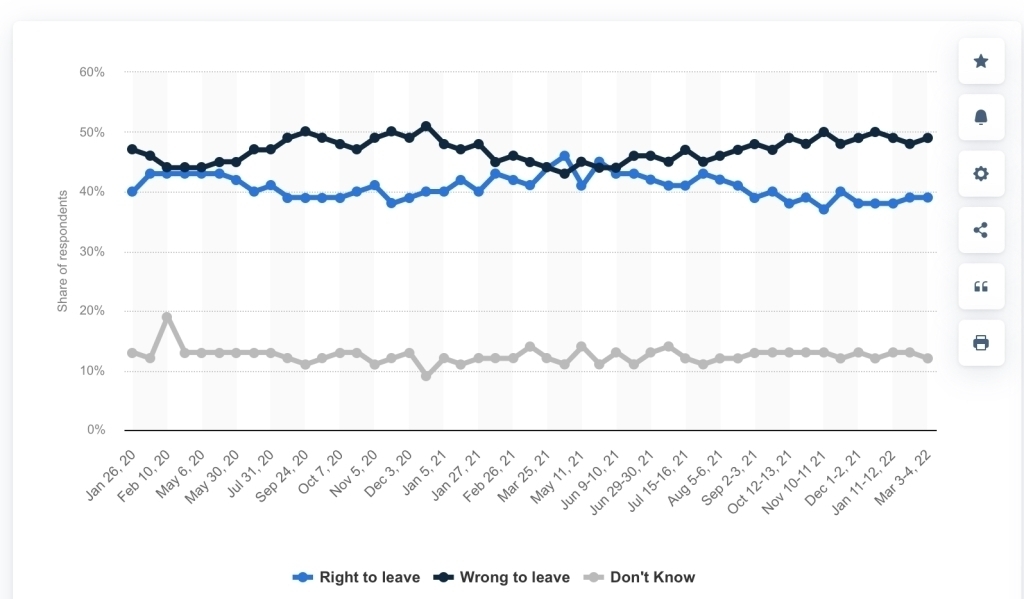What will it take to change people’s minds on Brexit?
I do wonder what the level of poverty and misery is that Brexit supporters are willing to inflict on their fellow citizens before they start to think “hang on, I might have made a bit of an error here”.
I suspect the answer is “quite a lot” for a couple of reasons. First, for many, winning the referendum was the first time in maybe a decade they had felt like they had any control over their lives, and were on the “winning” side. Once you have had that feeling, it takes a lot to shift you away from the position of winning: you’re emotionally attached to it in a way which is very, very deep.
Second, though: Brexit was largely delivered by the old, the conservative (small c) and less well-educated. None of those demographics are known for changing their minds often.

What’s also interesting is how the number of people who believe we were right to leave is remarkably consistent. Yes, as of today, 49% believe we were wrong to leave compared to 39% who believe we were right, and the gap has been widening since the middle of last year, but the gap widened in 2020 to about the same amount and then bounced back.
I would love to understand more about the factors moving those polls, because I think it’s almost certainly less obvious than most people think. But it’s clear that there is a rump of probably around a third of the country which believes Brexit was right no matter what the consequences they have seen so far, and are likely to believe the same in the future.

While it’s tempting to think that people are sick of hearing about it and tone down the anti-Brexit rhetoric (I’m looking at you Keir) it’s clear that the underlying attitudes and issues which are driving that 39% are going to be influencing British politics for a long time.